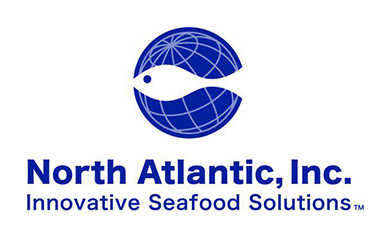The Top 25: North Atlantic, Inc. Q&A

What kind of trends have informed North Atlantic, Inc.’s latest sustainability/conservation efforts?
We at North Atlantic, Inc. (NAI) embarked on a mission to create sustainable supply chain/value chains from Southeast Asia in 2009. The development of the sustainability discussion globally and the recognition of the depletion of global fisheries across all sectors of the industry that began in earnest in Barcelona in 2006 were the drivers. We were in the process of shifting our supply to Southeast Asia and decided to try and gather like-minded NGOs, government players, and industry players to share core competencies and work together in Indonesia to develop sustainable supply chains primarily with small scale fisheries (SSF). We were forced to work alone as turf battles in the NGO world, lack of political will within the Indonesian fisheries ministry/government, and lack of interest with Asian suppliers made cooperation impossible. We then went forward and developed an industry-driven business model that rewards all supply chain/value chain players for adopting sustainable practices that are within their control. The model is bottom up (community-based) instead of top down (policy-based), as change on the water is the fundamental driver of sustainable fisheries. Fishers live in the communities.
What key features serve to set North Atlantic, Inc.’s sustainable seafood offerings apart in the market?
NAI has been engaged in delivering market-driven “sustainability credentials” to North American market buyers. Buyers have primarily responded to vague customer demands and increased awareness crated by the NGO community. As these “credentials” have become part of the high-value buyer requirements, NAI has developed and/or implemented legitimate and auditable systems [such as] FIPs, social audits, fair labor agreements, traceability, community development. NAI is now recognized as a leader in providing reliable credentials and promotional content describing the credentialing processes to high-value North American buyers.
How does sustainability factor into your overall mission and strategy as a business?
Sustainability in all of its facets is the foundation of our business model. Our business model differentiates from the competition by providing and developing legitimate sustainability systems on the ground in Southeast Asia by working through the complexities of cultural and economic conditions in several countries. Our customers buy from us with the confidence that they are honestly receiving what they are asking for and paying for. NAI is the only Southeast Asian importer that has invested in full-time staff and office dedicated to supplier development and bottom-up sustainability systems.
How does North Atlantic, Inc.’s approach sustainable, responsible development?
Many millions have been spent on trying to create change and drive sustainability through developing policy or building community-based systems that are then left to the government to manage and grow. In countries where rule of law is weak, this approach has very little success. There is a place for helping develop and support government policy to create a legal framework.
Implementation and/or management of community-based systems developed by third parties requires strong governance at all levels of government and the political will to support and implement. Weak rule of law creates an environment that encourages self-interest to create the rules and systems, hence corruption that drives a survival mentality all along the supply and value chains. NAI’s approach is to drive change through market forces distributing value fairly and therefore rewarding sustainable behavior. We only depend on government and rule of law to provide a legal framework, although unenforceable, and therefore a semblance of credibility. NAI strives to serve the personal interests of all legitimate players. Self-interest always prevails in the absence of rule of law.






Share